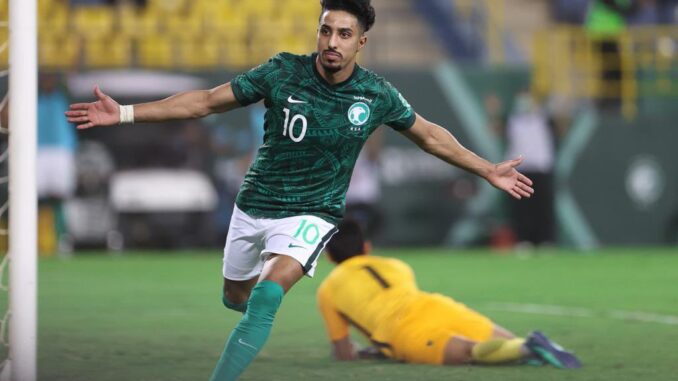
After nearly two years of extended gameplay, Round 2 of FIFA World Cup qualification in Asia draws to a close on Tuesday.
As we predicted two weeks ago ahead of the culminating centralised format, and could have realistically foreseen back right back at the start in the middle of 2019, half of the groups’ progression spots come down to the final match of the phase.
Never one for a randomised fixture list, the glamour 1st v 2nd close of play ticket the AFC instigated has well and truly delivered the climactic suspense it intended.
North Korea’s withdrawal may have forced a few to dust off their calculators over the last week, but one saving grace is that the leaders and chasers broadly hold their destiny in their own hands, which promises much to the football we can anticipate.
The cut off for Round 3 progression will however have its losers, and inevitably with it some big names. Heading into the final set of matches top seeds Iran, UAE and China are all sweating on keeping their Qatar 2022 hopes alive for another year, but potentially the most perilous from the big half dozen in Asian football; Saudi Arabia and Uzbekistan stand on the precipice.
From the initial draw, Group D was the weightiest top-heavy selection in prospect; pitting two giants of Asia – Saudi Arabia, fresh off their return to the world stage in Russia, and Uzbekistan, the eternal bridesmaid of World Cup qualification – against one another.
Neither were in good shape, however. Both had just hired a new coach post-Asian Cup collapse, and neither could afford a slip up at the first hurdle.
With a second shot at progression greeting the four best runners up (extended to five, given Qatar have topped Group E), groups such as Group D were tipped to see both big fish swim through; but both struggled early on, dropping points to Yemen and Palestine in the process.
In the end, those missed opportunities defines a winner-takes-all last day encounter.
Uzbekistan, trailing Saudi Arabia by two points, require a victory to go through as group winners. A draw would require at least two results elsewhere to go in their favour. A defeat even more.
While Saudi Arabia aren’t guaranteed to progress at this point; defeat would probably mean they qualify in a best runners up spot unless Yemen defeat Palestine, which on current form is becoming a greater possibility.
All of which adds greater focus on the Saudi-Uzbekistan clash, a matchup that is growing with poignancy as the years wear on.
Domestically, Uzbek super club Pakhtakor have regularly found resistance against Saudi opposition; exiting most recently in 2019 to Al-Ahli in spectacular fashion, while Uzbekistan’s Olympic dreams were put to bed by the Green Falcons in last year’s U23 Asian Cup semi-finals.
The reverse qualification fixture in Tashkent two Novembers ago epitomised their recent relationship. Uzbekistan led in the second half, solidly if not entirely comfortably going into the final five minutes, only to be sprung by two quick fire goals that shifted the balance of the standings ever since.
Uzbekistan’s meekness in the mental mind games in which Saudi have thrived so devilishly upon for so long, was once again on show for all to dissect. Asia’s often clichéd “chokers” were front and centre to more continental ridicule.
While it was a kick in the teeth for the White Wolves, it conversely was the critical turning point in Saudi Arabia and coach Herve Renard’s reinvention.
Renard’s, who was glamorously heralded post-Asian Cup in the place of Spanish coach Juan Antonio Pizzi, was seen as the big name to finally match the inflated expectation of the kingdom’s place in World football.
Pizzi’s Saudi Arabia was a modern thinking, aesthetically pleasing but energy sapping struggle to put it mildly; destroying and rebuilding deep-seated cultures that had been ever present in Saudi football for decades, some that had only been used successfully as recently as by previous coach Bert van Marwijk. It was a destructive but progressive reassembly.
Pizzi was given time, two failed tournaments in fact; and while stylistically they flourished, substance was unforthcoming.
Renard’s arrival aimed to gel a winning mentality of the past, with the possession focused nuances of Pizzi. Despite retaining some Pizzi hallmarks, initially the team lost drive and intensity previous regimes relied upon. Renard’s Saudi Arabia were slow, cautious and remarkably placid; the last five minutes in Tashkent not only saved the French man his job, it also reawakened the Saudi spirit.
Uzbekistan, on the other hand, were in fine form heading into their November 2019 clash. Reverting from the ultra-defensive, risk averse Hector Cuper, came a bold, direct and in your face national team, headed by Vadim Abramov.
One of the few local attack minded coaches, Abramov was trusted to rebuild a golden generation that were becoming lost, all the while integrating their next series of potential stars of the future.
Playing into their young and energetic hands, he trusted in his players’ talent, providing instant dividends. Direct wing play, effective force and an eye for a goal; this was a world away from Qosimov and Babayan, let alone Cuper.
That, of course, was until they met their match against Saudi Arabia.
In a clash that swayed between the technical, the physical and the mental; the further it oscillated to the latter, the more Uzbekistan lost control.
Single mindedness is a philosophy that Abramov instills in his team – sticking to a single state of play regardless, but few can weather a bombardment of Saudi psychological warfare.
Abramov and Uzbekistan’s failure to cope with the distinct shift to Saudi-ball late in the game cost them ground dearly, an after effect that lives to this day.
In peripheral form, Uzbekistan have been on point these last two weeks. A 5-0 reverse of Singapore followed by a narrow victory over Yemen tested both exuberant and pragmatic elements of this new look Uzbekistan side.
In peripheral form, Uzbekistan have been on point these last two weeks. A 5-0 reverse of Singapore followed by a narrow victory over Yemen tested both exuberant and pragmatic elements of this new look Uzbekistan side.
COVID did few national teams many favours, but it did give a young, inexperienced Uzbekistan side time to grow.
Led by two talismanic, European standard attackers in Eldor Shomurodov and Jaloddin Masharipov, no-one outside the elite of Asia has the instant individual impact they have, while defensively they’re realigned but critically haven’t been truly tested for a long time.
Saudi Arabia also seem to be going from strength to strength. While Renard’s football remains a few gears down from Pizzi, the fluidity and imperious strength is admirable.
The weak point remains in attack; Pizzi’s evidential achilles heel. Famed for standout free-scoring number nines over the last decade such as Nasser Al-Shamrani and Mohamned Al-Sahlawi, the next generation of focal points remains stuttered.
Saleh Al-Shehri, the position holder for the moment, fits a role many in the squad have enabled over the last few years; energetic and fluid in build-up, but lacking in crucial moments, hidden effectively by three goals in three internationals where he could and should’ve had more.
Instead, the last two weeks have been flung to the usual supporting attacking cast of Fahad Al-Muwallad and Salem Al-Dawsari, the experienced two bailing the side out twice against Yemen and Singapore despite broadly blunt encounters.
The reliance on individual brilliance rather than an effective and predictable route to goal remains a concern.
While on paper, this match puts up two sides in form; there are cracks to uncover and subplots to unpick.
How Abramov plays his hand in what remains a must win tie against a Renard, who continues to oversee possessional dominance that lacks end product, will be crucial in how this plays out.
As has been the case in recent outings, late displays of mental agility or collapse hold the balance in who’s World Cup journey will continue past June.
Photo: Saudi Arabia Football Federation
Listen to Episode 69 of The Asian Game podcast as we preview the conclusion to Round 2 of FIFA World Cup qualification




